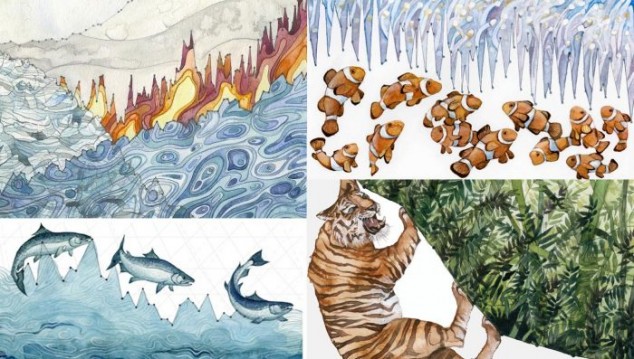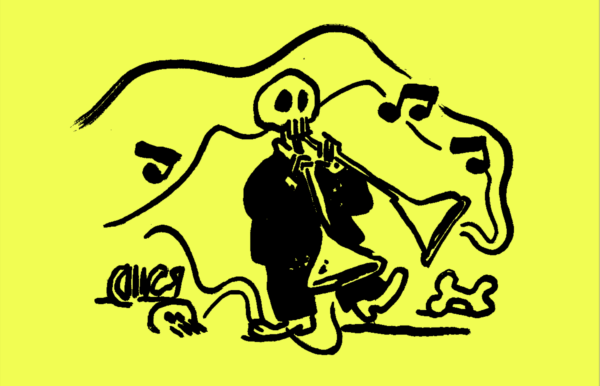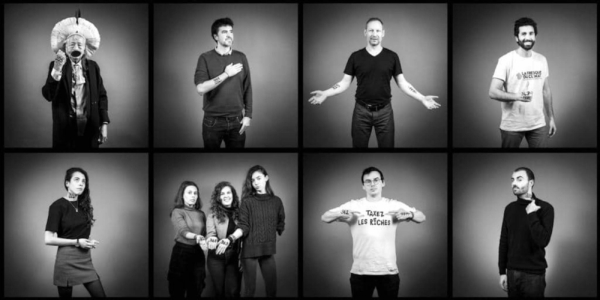
Morts ou vifs – Pour une écologie des arts vivants
Julie Sermon analyse les résonances des problématiques écologiques dans le champ des arts vivants

Crédit image : Carole Backer
Plateform Future Climates
Fondée par Antonia Alampi et Iliana Fokianiki, la plateforme « Future Climates » lancera cet été 2017 son site internet, ainsi qu’une série d’évènements et de conférences, accompagnée d’une exposition de trois mois.
Future Climates is a platform that aims to propose viable futures for independent cultural practice. Its objective is to actively shape the forecast of institutional climates by addressing the critical and precarious conditions of individual workers and small-scale organizations of contemporary art and culture.
At its core lies the urgency for imagining new sustainable economies in response to the changing weathers that affect labour rights, work ethics and funding methods, and addressing related issues of symbolic appropriation, exploitation and exoticization.
Future Climates thinks and acts locally specific with an international vocation. It aims to learn and educate by tracing associations and by building relations between institutional ecologies in different geographic locations, chiefly focusing on contemporary art and culture in contexts with a weak or absent public infrastructure.
Future Climates manifests in three ways: (1) as research in progress openly accessible for everyone via an online platform where findings such as archival material, new and existing essays, conversations and reports are published; (2) as curatorial frameworks such as discursive programs, temporary schools, and exhibitions in different cities; (3) as an organization that manages and coordinates the implementation of new ideas and projects.
MOTIVATION
Economic and more recently ecological sustainability, long-term structural support, low compensation of artistic and intellectual work, precarious labour conditions, complicated or problematic legal, political and bureaucratic frameworks: all art and cultural institutions around the world wrestle with these issues.
Building and running small-scale not for profit initiatives in geographic locations marked by a lack of public infrastructure and support usually goes hand in hand with precarious labor conditions. Workers are either underpaid or not paid at all, which in many cases leads to the life-span of institutions being short, whilst they rely on DIY technicalities and the limited resources of collective sharing, friendship and generosity.
While small not for profit initiatives are increasingly invited to take part in art-fairs, biennales, and the programming of large museums – thus marking a general recognition of their cultural capital and relevance – cultural policies are increasingly gathered towards main-stream or large-scale events and institutions, putting their life and longevity even more under threat.
For these reasons, it is urgent to imagine and implement new ways of existing and operating, clear and ethical parameters that define and regulate acceptable working conditions, in order to emancipate from old unsustainable models.
The surge of new art and socially engaged small and citizen-led initiatives of different kinds that continue to emerge in Athens in the backdrop of the peak of the economic, political and migrants crisis and the arrival of mega-institutions vis-a-vis the weakness of the public (funding) system, make of this city and its agents a paradigmatic context to start in.
Pour plus d’informations sur la plateforme nous vous invitons à découvrir leur Page Facebook
Julie Sermon analyse les résonances des problématiques écologiques dans le champ des arts vivants
Et si Paris atteignait les 50°C ? Le Théâtre de l’Odéon anticipe cette éventualité en publiant une étude inédite sur…
BORN IN PPM...1925 - 2025 de Mary-Lou Mauricio, retrace une aventure visuelle et engagée qui sensibilise chacun à l’évolution dramatique…

